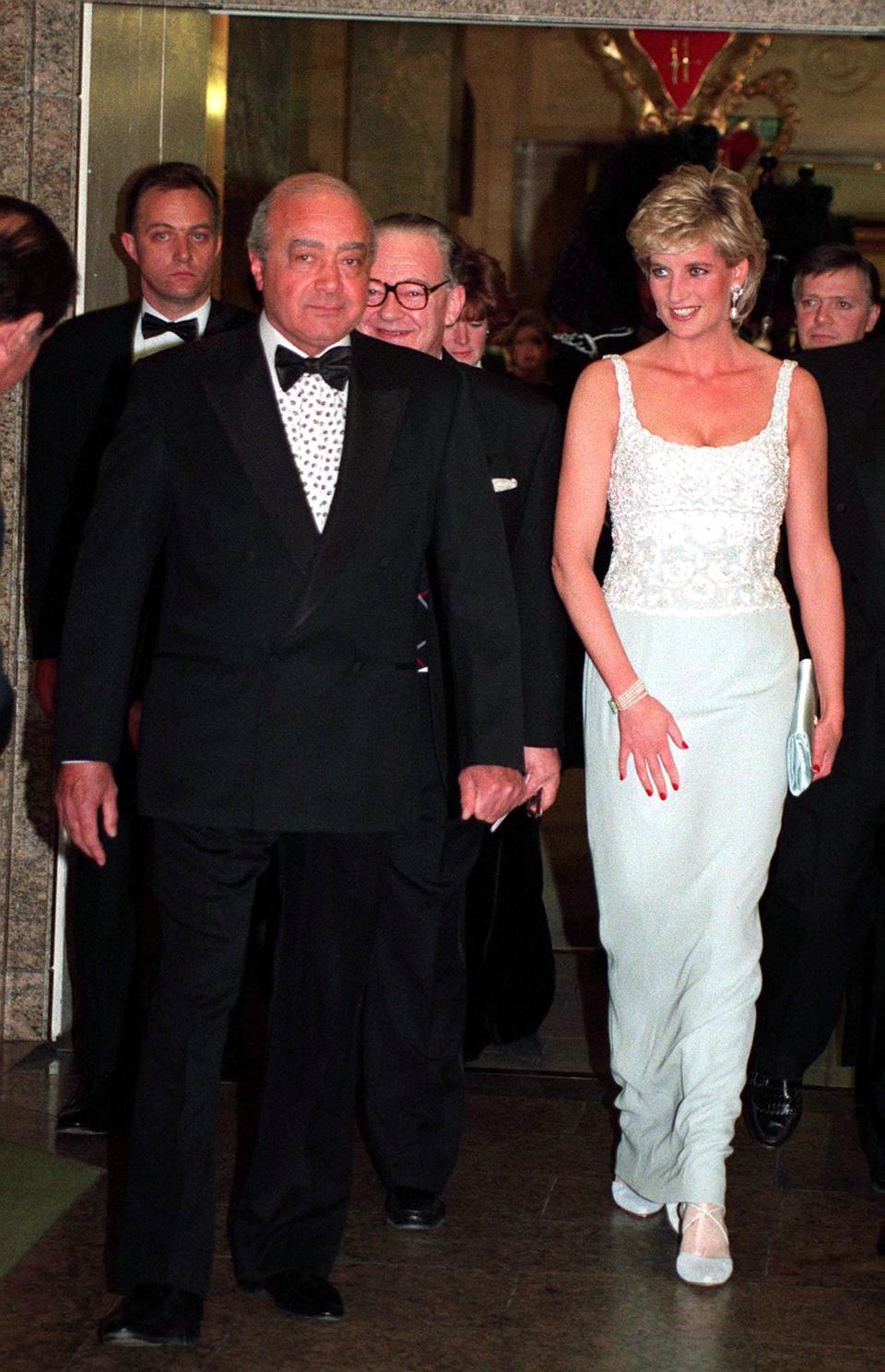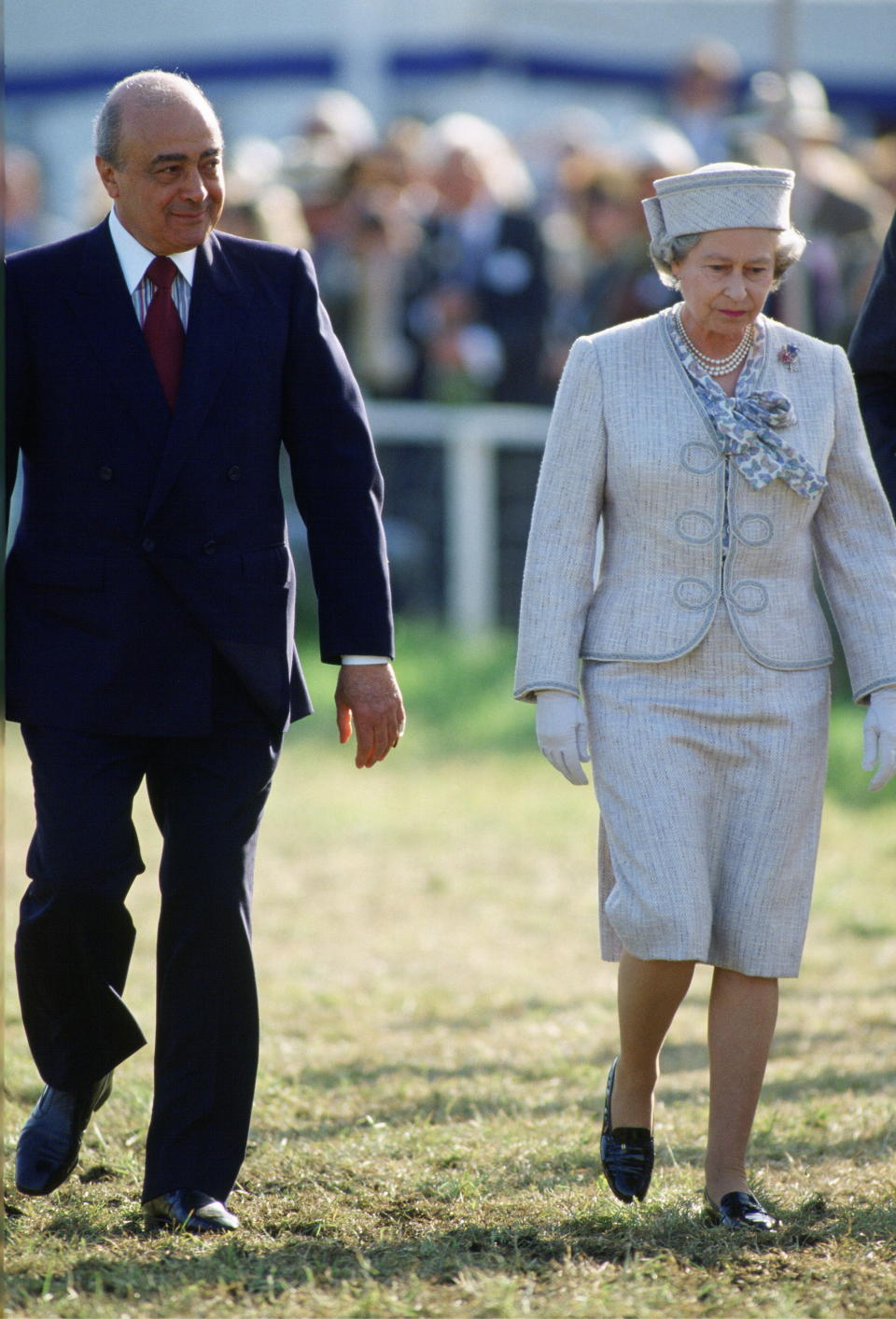A BBC Documentary on Mohamed Al Fayed Opens the Floodgates of Allegations

LONDON — On Friday morning in London, barrister Bruce Drummond KC led a press conference with his legal team and with one of Mohamed Al Fayed’s alleged victims, Natacha.
Al Fayed, the colorful and controversial former owner of Harrods and the Ritz in Paris, who died last year, is the subject of a BBC documentary exposing his alleged bad behavior at the luxury retail department store.
More from WWD
In “Al Fayed: Predator at Harrods,” 20 women allege they were attacked by the Egyptian businessman and five women claim they were raped by him.

The lawyers are representing 37 alleged victims of Al Fayed.
“This is one of the worst cases of corporate sexual exploitation that certainly I and perhaps the world has ever seen,” said Drummond, comparing the case to having combinations of “some of the most horrific elements of cases involving Jimmy Saville, Jeffrey Epstein and Harvey Weinstein.”
“Saville because the institution [the BBC] knew about the behavior, Epstein because there was a procurement system in place to source the women and girls for abuse, Weinstein because it was a person at the very top who was abusing his power,” he added.
Harrods’ current owners, Qatar Investment Authority, said in a statement that they are “utterly appalled by the allegations of abuse perpetrated by Mohamed Al Fayed. These were the actions of an individual who was intent on abusing his power wherever he operated and we condemn them in the strongest terms. We also acknowledge that during this time as a business we failed our employees who were his victims and for this we sincerely apologize.
“The Harrods of today is a very different organization to the one owned and controlled by Al Fayed between 1985 and 2010, it is one that seeks to put the welfare of our employees at the heart of everything we do,” the investment authority added.
The luxury department store said it is prioritizing settling claims “in the quickest way possible, avoiding lengthy legal proceedings for the women involved. This process is still available for any current or former Harrods employees.”

A divisive figure at Harrods and the U.K. In general, Al Fayed inspired loyalty — and loathing — among employees, colleagues and fellow entrepreneurs.
“He loved his glamorous ladies and my boss loved working with him,” a former Harrods employee who joined after Al Fayed had left told WWD, requesting anonymity.
“Under Qatari owners everything was always very by the book. In a way, it was more toxic than any kind of monkeying around. It was ruled with an iron fist, they were very commercially driven and there’s nothing like that going on under the Qataris’ watch,” they added.
Al Fayed’s management style could, at best, be described as mercurial. He showered executives with cars, apartments on Park Lane and all-expenses-paid trips. But as quickly as they won his favor, they just as rapidly — and inexplicably — lost it.
“He loved fun and creativity. He had Richard Gere coming in to open the sales. He wanted theater,” another employee said.
On Al Fayed’s watch, female shop floor staff had to dress in black, and wear high heels and a full face of makeup. The employee entrance to the store had a large room filled with rows of illuminated mirrors so that women staffers could apply their makeup in the morning, and refresh it throughout the day.
“He would walk around the store and he would choose who was sent up to the chairman’s office. They all came off, usually, the fashion and beauty floors — and it was never women of color, older women or larger women,” claimed another employee about their time working at Harrods.
“Everybody knew — it was an open secret,” they added.

According to the documentary, Al Fayed would ask those around him to take a health test, which included a blood test to see if they were clear of any illnesses or sexually transmitted diseases or infections.
“He was a germophobe. He had a taster for his food and he had to wipe his hands with antiseptic wipes after he shook anyone’s hands,” said another employee who worked at Harrods.
Al Fayed’s allegations of sexual abuse were brought to light by Vanity Fair in 1995, ITV in 1997 and Channel 4 in 2017, but the stories never ever took off to this public scale.
The Egyptian-born tycoon sued Vanity Fair and then settled after the death of his son Dodi in the 1997 car crash that also killed Princess Diana.
In the settlement, he asked for all evidence to be discarded, according to the documentary.
Best of WWD
Sign up for WWD's Newsletter. For the latest news, follow us on Facebook, Twitter, and Instagram.
Solve the daily Crossword

